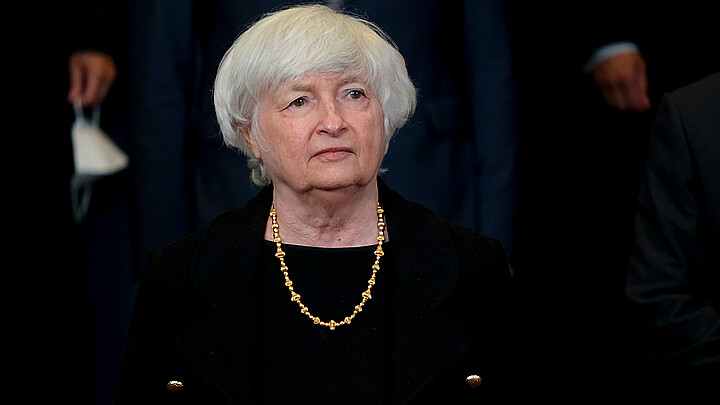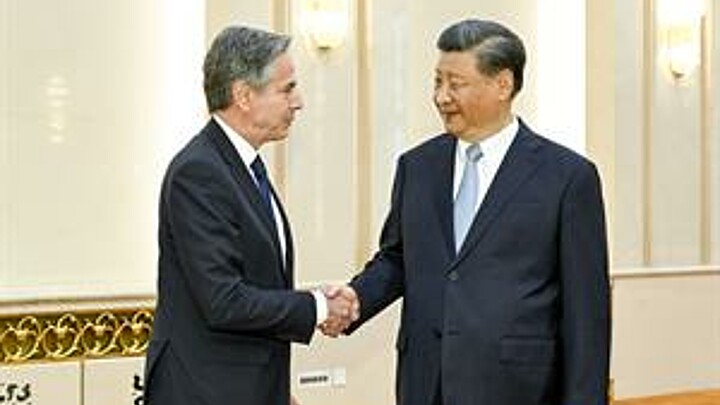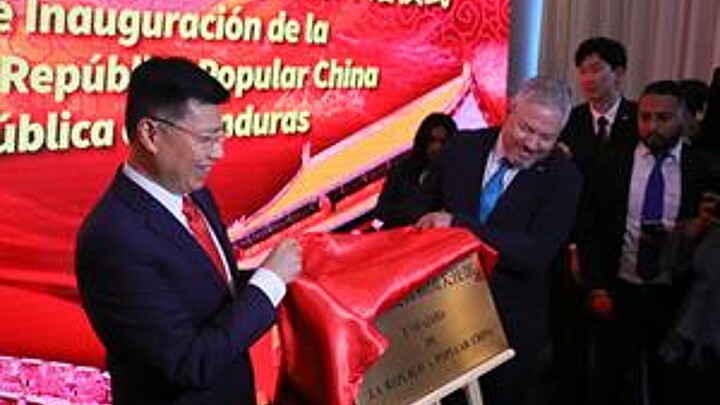Politics
Biden family received $31 million from businessmen tied to Chinese intelligence, book reveals
Peter Schweizer's 'Red-Handed': How China and U.S. elites are profiting at the expense of America
February 6, 2022 11:54pm
Updated: February 7, 2022 9:49am
New evidence confirms "the Biden family received some $31 million from Chinese businessmen with very close ties to the highest levels of Chinese intelligence during and after Joe Biden's tenure as vice president," best-selling investigative journalist Peter Schweizer reports in his book, "Red-Handed: How American Elites Get Rich Helping China Win."
The Bidens' connections with China included Hunter Biden developing an attorney-client relationship with Ye Jianming, one of the wealthiest businessmen in China.
At the time, Ye was the chairman of CEFC China Energy Company Limited, "an intelligence- and military-linked Chinese company that was supporting voices calling for an aggressive military posture against the United States and its allies," and Hunter was his representative in the U.S., writes Schweizer, president of the Government Accountability Institute.
As the Biden family made money off of their deals with Chinese businessmen, Communist Party officials and Chinese elites were allegedly granted off-the-books meetings with then-Vice President Biden, including at the White House, according to "Red-Handed," which debuted this week at number one on the New York Times hardcover nonfiction best sellers list.
During the Obama administration, Biden was also the point person for U.S. foreign policy with China, Schweizer notes. In May 2011, the vice president said, "A rising China is a positive, positive development, not only for China but for America and the world writ large."
Likewise, the diplomat who was responsible for helping open up China to diplomatic relations with the U.S. in 1972, Henry Kissinger, also developed ties with the communist government, which he later sold to corporate America, Schweizer explains.
After leaving the secretary of state's office in 1977, Kissinger in 1982 started his own international consulting firm, where he used his connections with China to open doors for Western corporations to do business there.
Kissinger also became a richly rewarded China expert, reaping $100,000 a year from ABC News to provide commentary on world events during the time of the Tiananmen Square massacre, according to Schweizer.
Following the massacre, Kissinger recommended that the U.S. not place sanctions on China and even defended the Chinese Communist Party's actions, saying, "No government in the world would have tolerated having the main square of its capital occupied for eight weeks."
Thanks in part to Kissinger's trailblazing, China's ties now also extend to Silicon Valley, including CEO of both Tesla and SpaceX, Elon Musk.
Despite initially claiming that Tesla would remain in the U.S. and not build a factory in China, Musk eventually yielded after CCP-linked Tencent Holdings bought a 5% stake in the company.
There are potential national security issues regarding Tesla's Chinese factory, as CCP-connected executives were put in charge of its operations, according to Schweizer.
SpaceX has many intelligence- and military-related contracts with the U.S. government, and while Tesla and SpaceX are separate companies, they have some crossover with personnel and technologies.
In a 2017 investors call, Musk said, "That's cross-fertilization of knowledge from the rocket and space industry to auto back and forth, as I think it's really been quite valuable."
SpaceX lobbied against legislation introduced in Congress that had the goal of determining whether U.S. companies that work with NASA could be leveraged by Chinese entities, Schweizer reports.
Severing Chinese entanglements with American elites, Schweizer suggests, could be accomplished through laws to prohibit CCP-linked companies and entities from lobbying, appearing on American stock exchanges, and working with American universities — although it is probably unrealistic, he acknowledges, to hope that the same politicians who benefit from ties with China would pass such laws.
Similarly, he calls on the media to push for transparency in corporate, public sector, and academic links with China.
Ultimately, Schweizer belives, the most promising avenue of change is shareholder activism challenging corporate leaders on their relationships with China as Americans reconsider the U.S. trade relationship with the communist country.










